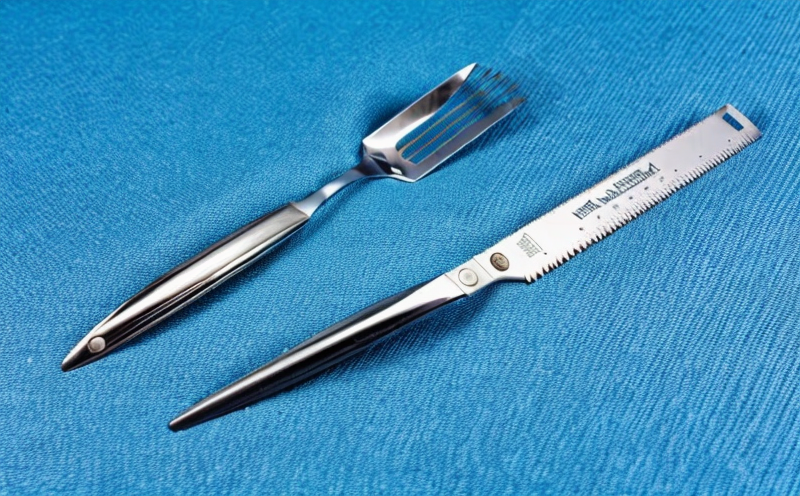Sterilization validation for surgical instruments
The Importance of Sterilization Validation for Surgical Instruments Ensuring Patient Safety and Regulatory Compliance
In the medical industry, maintaining a high level of sterility is crucial to prevent the spread of infections and ensure patient safety. One of the most critical steps in achieving this goal is through sterilization validation for surgical instruments. At Eurolab, we specialize in providing laboratory services that cater to the needs of healthcare professionals, manufacturers, and regulatory bodies. In this article, we will delve into the significance of sterilization validation for surgical instruments, its benefits, and why its essential for businesses to invest in this critical process.
What is Sterilization Validation for Surgical Instruments?
Sterilization validation for surgical instruments involves a series of tests and evaluations designed to verify that the sterilization process being used is effective in eliminating microbial life forms. This includes bacteria, viruses, fungi, and other pathogens that can cause infections. The goal of sterilization validation is to ensure that the instruments being used in medical procedures are free from contaminants and pose no risk to patients.
Why is Sterilization Validation for Surgical Instruments Essential?
The consequences of inadequate sterilization can be severe. Infections caused by contaminated surgical instruments can lead to serious health complications, including sepsis, organ failure, and even death. Moreover, non-compliance with sterilization regulations can result in costly fines, reputational damage, and loss of business.
Here are the advantages of using sterilization validation for surgical instruments
Benefits of Sterilization Validation
Ensures Patient Safety By verifying that your sterilization process is effective, you can ensure that patients receive safe medical treatment.
Compliance with Regulations Meeting sterilization standards set by regulatory bodies helps you avoid costly fines and penalties.
Risk Reduction Reduces the risk of infection and complications associated with contaminated surgical instruments.
Improved Reputations Demonstrates a commitment to quality and safety, enhancing your reputation in the industry.
Cost Savings Avoids potential lawsuits and financial losses resulting from non-compliance or inadequate sterilization practices.
Increased Efficiency Streamlines your sterilization process by identifying areas for improvement and optimizing procedures.
Sterilization Validation Process
Eurolabs laboratory services involve a comprehensive evaluation of the sterilization process, including
Microbiological Testing Analysis of microbiological samples to detect any surviving microorganisms.
Validation Protocols Development of customized validation protocols tailored to your specific needs.
Quality Control Measures Implementation of quality control measures to ensure accuracy and reliability of test results.
Common Myths about Sterilization Validation
At Eurolab, weve encountered several misconceptions about sterilization validation that can lead to confusion and uncertainty. Here are some common myths
Myth Sterilization validation is only necessary for high-risk procedures.
Reality Any medical instrument used in a surgical setting requires validation to ensure sterility.
Myth Sterilization validation is a one-time process.
Reality Validation must be performed regularly, and protocols may need to be updated as new technologies or procedures emerge.
Frequently Asked Questions
At Eurolab, we understand that our clients have questions about sterilization validation. Here are some answers to common inquiries
Q How often should I validate my sterilization process?
A Validation must be performed at least annually and after any changes to the sterilization protocol or equipment.
Q What types of instruments require validation?
A All medical instruments used in surgical procedures, including endoscopes, laparoscopic instruments, and implantable devices.
Q Can I perform sterilization validation in-house?
A While some organizations may attempt to validate their own sterilization processes, its recommended that you work with a reputable laboratory like Eurolab for accuracy and reliability.
Conclusion
Sterilization validation for surgical instruments is a critical component of patient safety and regulatory compliance. At Eurolab, we offer comprehensive laboratory services designed to ensure the effectiveness of your sterilization process. By partnering with us, you can rest assured that your medical instruments are free from contaminants, reducing the risk of infections and complications.
Dont compromise on patient safety or regulatory compliance. Invest in sterilization validation for surgical instruments today and reap the benefits of improved efficiency, reduced costs, and enhanced reputation. Contact Eurolab to learn more about our laboratory services and schedule a consultation with one of our experts.
Call-to-Action
Take the first step towards ensuring patient safety and regulatory compliance by scheduling an appointment with us. Our expert team will guide you through the sterilization validation process and help you achieve peace of mind knowing that your medical instruments are safe for use in surgical procedures.
At Eurolab, were committed to providing top-notch laboratory services that cater to the unique needs of healthcare professionals, manufacturers, and regulatory bodies. Trust us to ensure that your sterilization validation requirements are met with precision and accuracy.
Get Started Today
Eurolab is dedicated to delivering exceptional laboratory services that prioritize patient safety and regulatory compliance. To learn more about our sterilization validation process or to schedule an appointment, please visit our website for further information.




